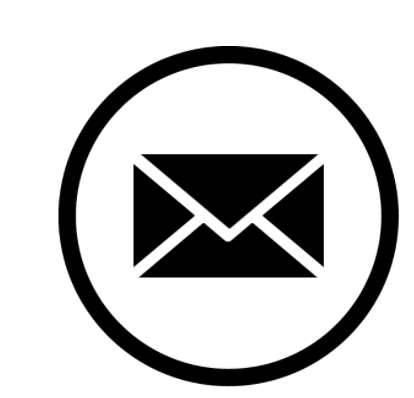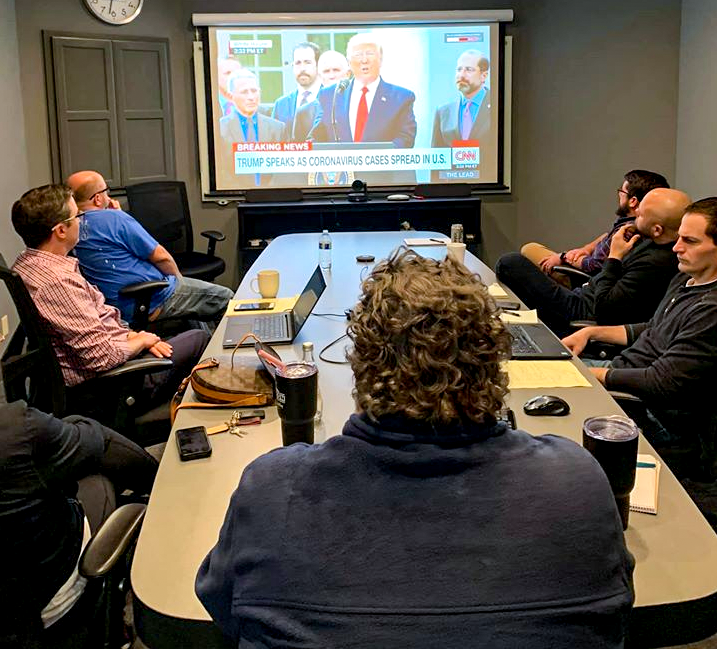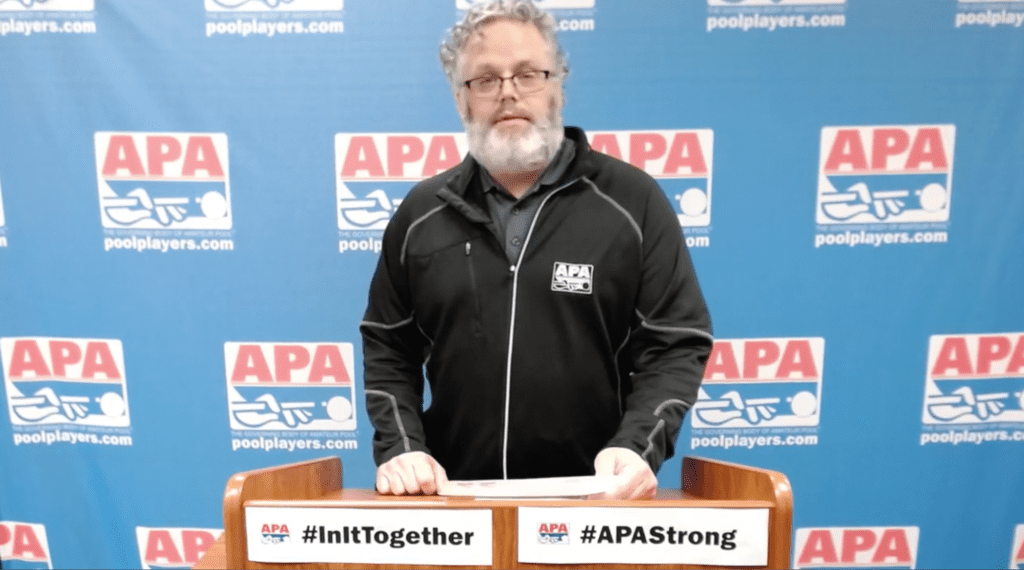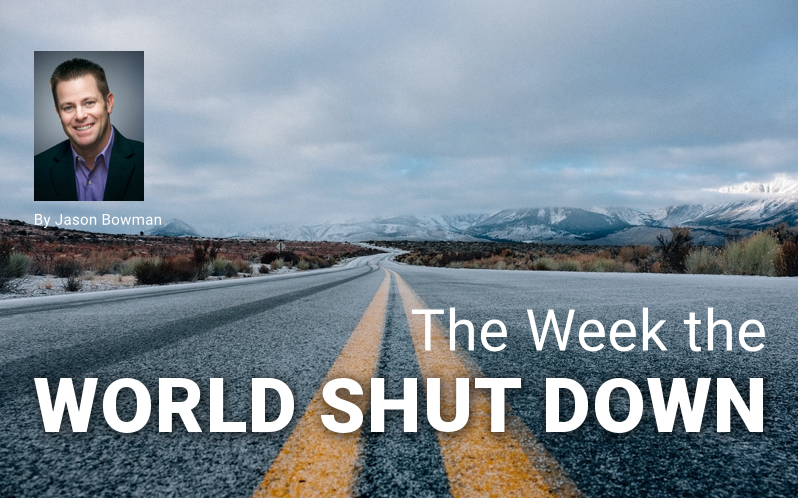
Initially, it showed up in my email inbox. A message from our Event Director. She expressed concern to our management team about this new Coronavirus that could be a threat to the upcoming APA Poolplayer Championships, which at the time, were still nearly two months away.
I had followed news of this new virus from China during the month of February, but I really didn’t think much of it. I assumed, like most things covered by the media these days, it was overhyped.
The calendar was about to turn to March, and I was on my way to a conference in San Diego that would be attended by several thousand people from across the globe. The last thing I wanted to think about was a virus. As it turned out, it would be one of the last major conferences held in the United States before the pandemic.
While I was gone, internal communications about the virus had continued, and a meeting was scheduled, shortly after my return, for our leadership team to further discuss its potential impact on our upcoming event.
We convened a meeting on Thursday, March 12, comprised of team leaders from across the organization – Operations, Marketing, Tournament Productions, etc.
Just the night before, most professional sports teams had suspended their seasons, and our late April/early May event was starting to look very iffy.
All in all, there was a group of about eight of us in that first meeting. Little did we know, that from that day forward, until APA Headquarters would shut down less than a week later, we’d spend most of our waking hours convened in what we’d later refer to as “the war room.”

“…less than a week later, we’d spend most of our waking hours convened in what we’d later refer to as ‘the war room.'”
We spent hour after hour discussing the latest happenings, watching news briefings from the White House, and talking to our network of League Operators about how things that were changing might impact them and our members.
It seemed every hour brought something more dire. What began as a discussion about the Poolplayer Championships, suddenly became a discussion about APA Leagues across the globe.
Since the initial outbreak varied so greatly by state, or area of the country, we immediately advised our League Operators to strictly follow the guidelines of their local health officials. We also encouraged our members to practice smart hygiene habits like washing their hands before and after each match and to forgo customary handshakes.
Early the next week, schools in our area had been closed, and major cities were starting to enact “stay at home” orders across the country.
Things continued to change rapidly.
Eventually, it became apparent to everyone in that war room that something unprecedented was going to be happening to our business – our leagues would be shutting down across the board.
And shut down they did, along with most facets of society. As I look back on it now, it’s pretty remarkable how quickly the world seemed to come to a screeching halt.
By March 17, most of the staff at our Headquarters was working from home, with the exception of our leadership team.
The following day, I met APA President Greg Fletcher at our nearly empty office to help prepare him to address the APA family across the globe via live stream and to announce a full shutdown of APA.
It was a sobering moment for both of us. Afterwards, we parted ways, unsure when we might see each other face to face again, and more uncertain about what would lie ahead.
That night, after my wife and I got the kids to bed, I needed to decompress, and I wanted to process everything that had happened.

I had the same concerns many other hard-working people in this country were having: was my job safe, was my family safe, how bad could things get?
Once I calmed down a bit, I figured I’d switch on the television and try and forget about all of it for a while. No dice. Sports were gone, shows talking about sports were gone, and I was hard pressed to find anything that didn’t somehow lead back to the pandemic.
I turned off the television.
I couldn’t stop thinking about how our members would be impacted by all of this. So many of them play in APA as a way to connect with other people. For some, it’s their only connection. I worried about people who lived alone and people who didn’t have anyone outside of League. Would those people feel isolated and lonely as we began this new thing called “social distancing?”
With the revelation that there wasn’t much of a distraction from all things Coronavirus related, and wanting to make sure our members, who relied on APA for a sense of community, didn’t feel lost and alone, I went to work with our marketing team developing a game plan.
We were going to find a way to help our members stay connected as our way of fighting back! If there wasn’t a viable distraction from the pandemic on TV or social media, we’d provide that positive distraction through content we’d create.
We quickly implemented an APA Group on Facebook, and started repurposing preexisting content from our YouTube channel. We started looking at new content that could be created, even with no pool going on.
I reached out to friends like Jeanette Lee and Florian Kohler to see what types of things we might be able to create with them from their homes to help our members take their mind off the pandemic, even if only for a little while.
We started Watch Parties, generated memes about how much we missed playing pool, and even managed to schedule some live matches that didn’t break social distancing or stay at home orders.
I suddenly realized that we were generating 400-500% more content than normal on our social media, despite the fact that our business was shutdown.
But the content was having an impact. Members and League Operators alike actually started reaching out to us to express their gratitude for giving them some relief of the constant negativity that came from coverage of the pandemic.
This drove our Marketing Team to want to create even more content to serve our members and the poolplaying community at large. I think you’ll see some of “that drive” reflected in the pages of this issue of The American Poolplayer magazine, and we hope our efforts had a positive impact on you.
As I write this article nearly two months later, the country is starting to slowly open back up. Some say it’s too early; some say we should have never been forced to stay home in the first place. It’s hard to know who’s right and who’s wrong.
My parents are in their 70s, and my wife and I have a 3 and 6-year-old at home. I also rely on my job to provide for my family. So, I suppose on a personal level, I’m living out the same debate our leaders and health officials have had to weigh since the very beginning of this pandemic.
Eventually, I’m sure it’ll all be sorted out, and it’s unlikely either side of the debate will ultimately be completely right or wrong.
What I do know is this—I will not soon forget the week the world shut down, and how APA responded. And, I’m hopeful that, eventually, we can all get back to what was once considered normal.

